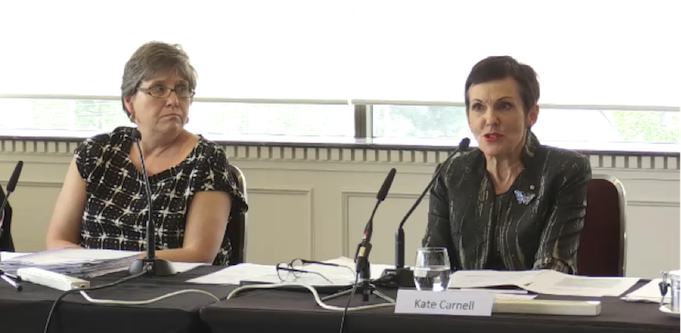
Australian Small Business Ombudsman Kate Carnell says that if Australian banks don’t adopt recommendations made off the back of a number of recent inquiries into their interactions with SMEs, it will show they “aren’t serious” about improving transparency in the sector.
On Monday a report into the Australian Bankers’ Association’s Code of Banking Practice was released, with independent reviewer Phil Khoury echoing calls made by Carnell that the code should be altered to improve transparency and fairness around loan terms for smaller businesses.
“I have focused my review as much on the challenge of rebuilding trust between banks and their customers as I have on the many technical and specific fairness issues raised with me,” Khoury writes in an executive summary.
The report makes a number of recommendations that relate to the small business community, including a call to review the wording of the banking code and include an accompanying guide especially for small businesses, and to alter the definition of a “small business loan” to facilities up to $5 million.
Australian Bankers’ Association chief executive Stephen Münchenberg said in a statement any revisions to the banking code of practice should focus on more “ethical behaviour” from the banks.
“Banks will use the recommendations to see how they can improve their commitments to customers, including working better with customers who are in financial difficulty through better promotion of our financial hardship support programs, fee-free bank accounts and financial inclusion programs,” he said.
The code is an industry-formulated charter of best practice, with banks that adopt the code becoming “contractually obligated” to adhere to its standards, according to the Australian Bankers’ Association.
At the end of 2016 Carnell grilled representatives from the big four banks about how and when they change loan terms for SME customers. Her inquiry found that the banking sector causes “significant harm” to smaller operators through unfair lending practices.
Carnell told SmartCompany this morning there is “absolute overlap” between her findings and that of the Khoury report into the banking code.
“Both of them are indicating there needs to be a much stronger SME jurisdiction. He is talking about a code that is transparent.”
There have now been several inquiries into how banks interact with business customers, says Carnell, and the only thing for the sector to do now is actually put proposals into action.
“I expect that they will pick up all of the recommendations—of ours and of Khoury’s,” she says.
“If they don’t they will show that they aren’t serious.”
There is significant overlap in the nature of recommendations from the Carnell inquiry and most recent review of the code, including calls to improve the way banks notify customers if the terms of their loan are about to be changed, and when they can do this.
Carnell says there is now consensus on recommendations to level the playing field in the sector, and the only thing for banks to do is act.
“A chunk of stuff [raised] is the same. You’d have to ask, what is the excuse? Why wouldn’t the banks pick up on this now?” she says.
“The issue is it’s been made clear to the banks what needs to be done, the challenge is just to do it. Go ahead, make the changes that everyone knows needs to be made and put some confidence back in the sector.”
The Australian Bankers’ Association has said it will provide a full response to the review of its code in March, with the aim of introducing a revised code at the end of the year.
Is a Royal Commission still on the cards?
The prospect of a Royal Commission into the banking sector continue to cause tensions in Canberra, with the Labor Party pushing the case for a broader inquiry into banking practices while Prime Minister Malcolm Turnbull argues it is unlikely to result in any action.
“You would have years and years of very expensive inquiry and then you’d have a report with some recommendations,” he said on the issue over the weekend, reports news.com.au.
SmartCompany readers have indicated some support for the proposal, with 77% of readers that responded to a poll on Twitter yesterday indicating they would support a Royal Commission, while 20% would not and 3% said they were unsure.
Carnell has previously told SmartCompany that an inquiry approach similar to that of the lending practices inquiry would see more concrete action for SMEs in a shorter time frame.
“The dilemma with a Royal Commission is that they take forever and the government then needs time to respond,” she said last year.
“Small business don’t have five years to wait, they have five minutes.”
The full independent review of the Code of Banking Practice can be read here.
Never miss a story: sign up to SmartCompany’s free daily newsletter and find our best stories on Twitter, Facebook, LinkedIn and Instagram.


COMMENTS
SmartCompany is committed to hosting lively discussions. Help us keep the conversation useful, interesting and welcoming. We aim to publish comments quickly in the interest of promoting robust conversation, but we’re a small team and we deploy filters to protect against legal risk. Occasionally your comment may be held up while it is being reviewed, but we’re working as fast as we can to keep the conversation rolling.
The SmartCompany comment section is members-only content. Please subscribe to leave a comment.
The SmartCompany comment section is members-only content. Please login to leave a comment.